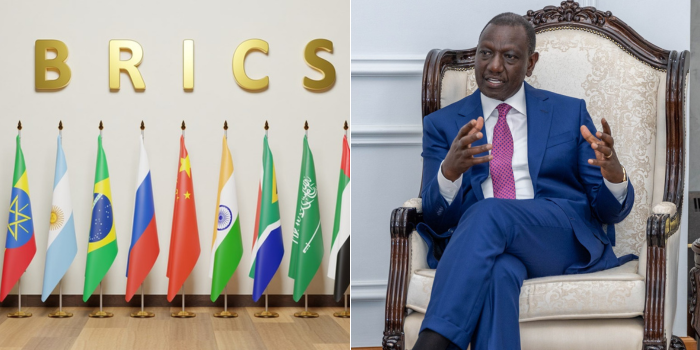The Constitutional Crisis in Kenya: A total Disregard for the 2010 Constitution
By Doris Kathia

The swift appointment and swearing-in of a new Deputy President by President William Ruto after the impeachment of the former deputy has raised significant constitutional and legal concerns. This move leaves me wondering what is the legitimacy and position of Kenya's democracy and does the government respects the rule of law?
As the country grapples with this unfolding drama, the inadequacies of the Independent Electoral and Boundaries Commission (IEBC), which is currently not fully constituted, exacerbate the constitutional crisis. The 2010 Constitution of Kenya, a document born from the hopes and struggles of Kenyans for a fairer, more transparent governance system, is under severe threat. The current scenario reveals a total disregard for its guiding principles, raising critical questions about the rule of law, separation of powers, and the independence of crucial electoral bodies.
The IEBC is the body that must ensure that electoral processes in Kenya are fair, free, and transparent. Its responsibilities include overseeing elections, conducting referendums, and managing electoral boundaries. A fully constituted and functional IEBC is necessary for any by-election or referendum, particularly one triggered by the removal of a key political figure like a Deputy President. According to the constitution, any gaps in leadership, especially in such high offices, should ideally be filled through a transparent process that involves public participation and, where necessary, an election.
Currently, the IEBC lacks the commissioners needed to conduct such exercises, making any political appointments to high office constitutionally questionable. President Ruto's decision to appoint a new Deputy President without a constituted IEBC undermines the democratic processes that the 2010 Constitution sought to protect and dismisses the necessity for checks and balances that are the bedrock of a constitutional democracy.
The constitution provides for the impeachment of a Deputy President, but the process must be transparent, just, and fair. It requires a thorough investigation, followed by a vote in the National Assembly. Any deviation from these constitutional provisions is an affront to the rule of law.
Impeachments in Kenya are no longer legal processes; rather political acts. However, when political interests override constitutional requirements, it sets a dangerous precedent. The 2010 Constitution of Kenya was designed to limit the powers of the presidency and enhance accountability through devolution and independent institutions like the judiciary, parliament, and the IEBC. The swift appointment of a new Deputy President, without a constituted IEBC or a transparent selection process, appears to disregard the spirit of the constitution. This only means that power has been centralized within the executive branch, undermining the checks and balances that are fundamental to a functioning democracy. This violates the law's letter and threatens to erode the public's trust in Kenya's political institutions. The Constitution is meant to protect citizens from arbitrary actions by the state, but what happens when the state itself undermines those protections?
Also Read:
-
Achieving Rights for All Women and Girls through Feminist Approach
-
The Hidden Agenda Behind the Move to Urban Centers?
To restore public confidence in the rule of law and governance, it is essential to address the constitutional crisis promptly. The IEBC must be fully constituted to ensure that all actions related to elections and appointments follow constitutional requirements. Moreover, the National Assembly must be vigilant in its oversight role. It should ensure that any appointments to high offices follow due process and align with the constitutional framework. Parliament's role as a watchdog is crucial, especially when the executive appears to overstep its boundaries.
Kenya stands at a crossroads. The choices made by its leaders at this moment will determine whether the country remains true to its constitutional values or veers towards authoritarianism. The 2010 Constitution was a hard-won victory for Kenyans, and its provisions must be respected and protected.
Ms. Kathia is a Human Rights Defender and a communications specialist
What's Your Reaction?





































































































